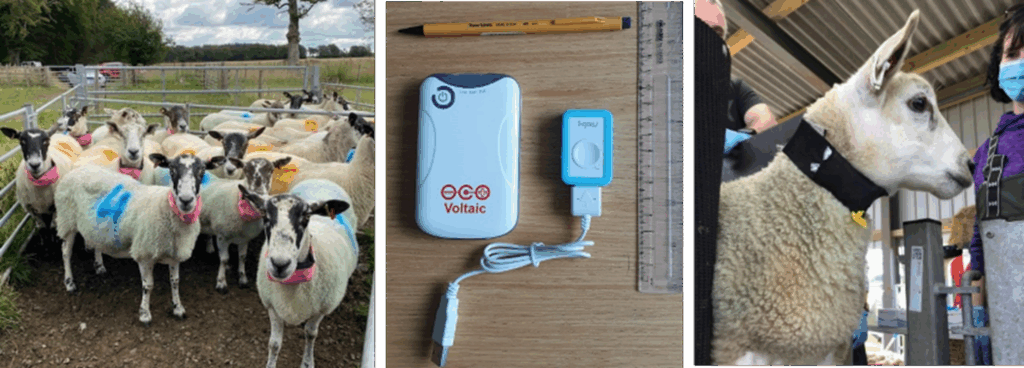 Moredun Research Institute (MRI) was founded in Scotland by farmers, for farmers in 1920 with the aim of improving the health of livestock, especially sheep. This was because of a significant rise in the value and demand of livestock following World War 1 which saw the need for research into livestock disease. Within six years the founding members had raised enough funds to buy a plot of land and build the Moredun Research Institute outside Edinburgh. Within ten years of the Research Institute opening, Moredun scientists had discovered the cause and developed vaccines and treatment strategies for Braxy and lamb dysentery which, at the time, were a huge concern for farmers. Over the years Moredun has continued to work closely with farmers and vets, as they strive to improve livestock health and support sustainable agriculture through the development of diagnostic tests and the creation of novel vaccines to combat infectious disease.
Moredun Research Institute (MRI) was founded in Scotland by farmers, for farmers in 1920 with the aim of improving the health of livestock, especially sheep. This was because of a significant rise in the value and demand of livestock following World War 1 which saw the need for research into livestock disease. Within six years the founding members had raised enough funds to buy a plot of land and build the Moredun Research Institute outside Edinburgh. Within ten years of the Research Institute opening, Moredun scientists had discovered the cause and developed vaccines and treatment strategies for Braxy and lamb dysentery which, at the time, were a huge concern for farmers. Over the years Moredun has continued to work closely with farmers and vets, as they strive to improve livestock health and support sustainable agriculture through the development of diagnostic tests and the creation of novel vaccines to combat infectious disease.
The Moredun Research Institute’s farm at Firth mains, just outside Penicuik, Midlothian, is a lowland livestock farm, compromising approximately 115 Ha in the shadow of the Pentland hills. Firth Mains is a working farm, which can run 600 breeding sheep. The main focus of the research work at Firth Mains is on the sustainable control of parasitic worms in sheep. This lowland farm is one of the TechCare pilot farms in the UK (together with the SRUC upland farm in the West Highlands). Both farms represent the spectrum of sheep farms conditions in Scotland and the UK.
Within Techcare, MRI is involved in WP5 – pilot trials. The trials conducted on the pilot farm at Firth mains constituted of ewes and lambs facing natural Gastrointestinal parasite infection on pasture while wearing PLF technology.

© all images MRI
Animals wore innovative low-cost Bluetooth beacons. Readers (WISPs) were either on-animal or on fence posts. Accelerometers and GNSS were used to ground truth the results. Data collection also included: BCS, live weight, mastitis score, faecal soiling score plus direct feacal & venal blood samples. FECs (faecal egg counts) was performed within 48 hours at MRI. MRI is also part of the Ethics management group within TechCare.
Short profile of the team involved in the TechCare project:
 Fiona Kenyon: Fiona is a senior researcher at the Moredun Research Institute, who specialises in the sustainable control of roundworm parasites in livestock. She is focused on 4 main topics, such as the optimisation of wormer use by targeting wormer to only those animals who will benefit (targeted selective treatments, TST), the impact of regenerative grazing approaches on animal health and welfare, impacts of disease in young female lambs on their future productivity and the use of technology to act as an early warning system for welfare issues or disease. Fiona is the main partner in TechCare, leading the MRI team in the project.
Fiona Kenyon: Fiona is a senior researcher at the Moredun Research Institute, who specialises in the sustainable control of roundworm parasites in livestock. She is focused on 4 main topics, such as the optimisation of wormer use by targeting wormer to only those animals who will benefit (targeted selective treatments, TST), the impact of regenerative grazing approaches on animal health and welfare, impacts of disease in young female lambs on their future productivity and the use of technology to act as an early warning system for welfare issues or disease. Fiona is the main partner in TechCare, leading the MRI team in the project.
 Jade Duncan: Jade is a graduate from the University of Glasgow, with an MSc in Aquatic Pathobiology from the University of Stirling. Jade joined MRI as a research assistant at the end of 2021 working within the parasitology department. One of her activities is to work on the TechCare project alongside Fiona.
Jade Duncan: Jade is a graduate from the University of Glasgow, with an MSc in Aquatic Pathobiology from the University of Stirling. Jade joined MRI as a research assistant at the end of 2021 working within the parasitology department. One of her activities is to work on the TechCare project alongside Fiona.
